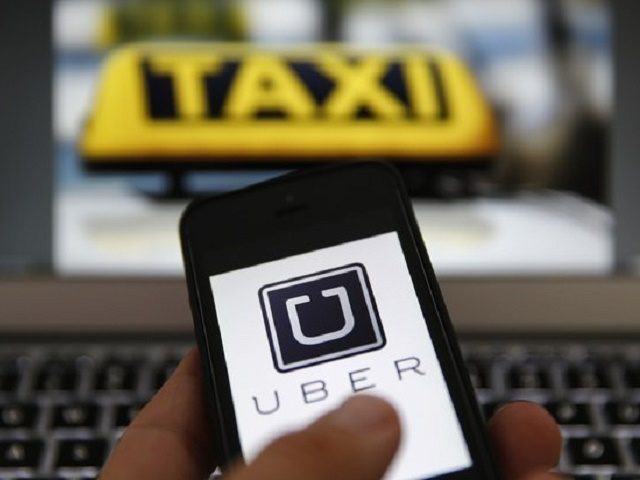Google recently resigned from Uber’s board as the former partners prepare for battle over self-driving cars. Away from California Attorney General Kamala Harris’ effort to mediate the battle between Uber and the state Department of Motor Vehicles over the unpermitted deployment of self-driving cars — which were pulled off the street Wednesday — the corporate fight is intensifying.
David Drummond, Senior Vice President of Corporate Development at Alphabet (Google’s parent), joined Uber’s board of directors in 2013 after Alphabet’s corporate venture capital arm, Google Ventures, bought a 7.5 percent Uber for $258 million. Earlier this year, it was estimated that Google’s stake in Uber was worth up to $4 billion.
Alphabet had been the world’s leader in the development of self-driving vehicles, with over 100 autonomous cars puttering around Silicon Valley everyd ay for the last two years.
With Google’s investment in Uber, it was assumed they would chose Google self-driving cars for their first commercially available autonomous ride-hailing service, which they launched in Pittsburg, Pennsylvania on September 1. But then Drummond resigned just before a fleet of self-driving Volvo X90 SUVs began to pick up and drop off Pittsburg passengers.
Breitbart News reported on December 14 that after Uber Technologies, Inc. lost a number of huge labor court disputes around the world and had failed to obtain patent protection for the ride-hailing app it pioneered, the company launched a full commercial “autonomous” ride-hailing service in San Francisco, without permission from the City or obtaining any permits from the California DMV.
The Wall Street Journal reported that Alphabet is now working on a “ridesharing” service that is woven into its Waze mapping application and that will connect drivers with patrons looking to go in the same direction. This ridesharing pilot, launched in May, was structured to keep fares so cheap that it would discourage passengers from driving full-time.
But with the service soon to be released across the Bay Area market, very low cost ride-sharing could represent an existential demand threat to the approximate 45,000 Uber and Lyft ride-hailing drivers in San Francisco that now dominate the city’s streets.
The Department of Motor Vehicles would not confirm the specific or purpose of their meeting Wednesday with Uber. But they did acknowledge that it would involve lawyers from the California Attorney General’s office that would be meeting with “representatives” from both Uber and California motor vehicle regulators. The state canceled the registration permits for Uber’s self-driving cars, according to TechCrunch, saying that it could re-register the cars if it also applied for permits to operate them as self-driving test vehicles on the roads.
Uber is refusing to apply for the $150 autonomous vehicle permit that the DMV claims is required to operate self-driving cars on the streets of San Francisco, even after the DMV’s general counsel wrote a cease-and-desist letter to Uber threatening legal action.
Uber has characterized their “issues” with the DMV as a “debate,” because there will always be a stand-by drivers “behind the wheel.” Uber had claimed that since their vehicles are “less than fully autonomous,” they do not need to apply or be qualified for any permits.
Anthony Levandowski, Uber VP of Advanced Technologies Group, has compared Uber’s self-driving technology to the Autopilot version 8.0 software that is installed without a DMV permit in all Tesla vehicles on California roads. Levandowski told the Verge blog: “You don’t need to wear a belt and suspenders and whatever else, things that don’t apply, if you’re wearing a dress,” Levandowski said. “If you’re driving a car, you don’t need a fish and game permit.”

COMMENTS
Please let us know if you're having issues with commenting.